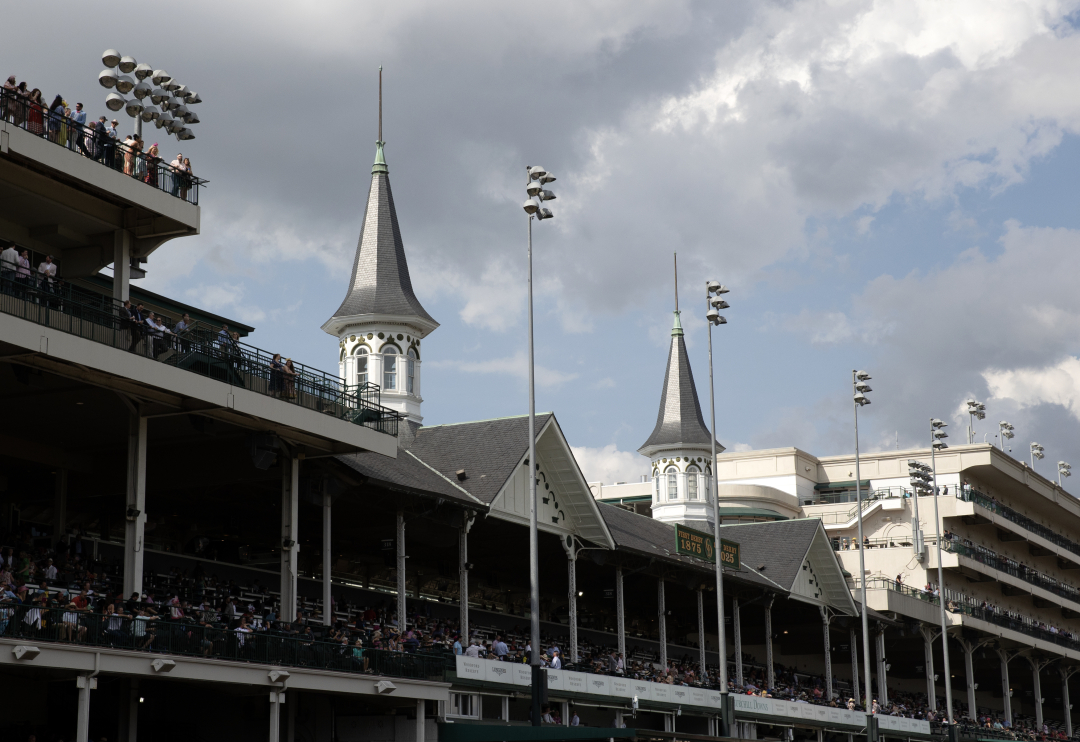The Kentucky Derby, the richest property in racing, will continue to “show meaningful growth” in revenue and visibility in the coming years, Churchill’s top executive said on Thursday morning during a conference call with analysts, despite the company acknowledging in financial statements released on Wednesday night that ticketing revenues declined in 2025 compared to the year prior.
Bill Carstanjen, CDI’s chief executive, said on the conference call that demand for Derby tickets is “growing” and that the decline in ticketing revenue this year was attributable to the strong ticket demand for last year’s Derby, which was the race’s 150th anniversary.
The company’s chief financial officer, Marcia Dall, also said on the conference call that revenue at Churchill Downs during Derby week was down $1 million compared to last year, but she cited the skewed comparison as well.
“It proved to be a strong comparison to achieve this year,” Carstanjen said.
Over the past two decades, Churchill has poured approximately $800 million into capital improvements to its facility and achieved consistently higher returns on its Derby week results due to strong growth in ticketing revenue. But earlier this year, the company retracted its plans for three new renovations costing an additional $1 billion, citing “increasing uncertainty surrounding construction costs related to tariffs and trade disputes, as well as current macro-economic conditions.”
On the conference call, Carstanjen did not commit to resurrecting those three projects, though he said that Churchill’s team is finalizing plans for a project for new seating areas around the first turn. Churchill’s announcement early this year of the three new projects the company eventually put on hold included a new first-turn, five-story structure budgeted at $465 million.
“We are very, very focused as a team on refining our cost estimates, refining our timing, refining our plans,” Carstanjen said.
Carstanjen said details about the new first-turn project would likely be announced after the third quarter this year. Further renovations appear to still be on hold.
“We will explain 2027, 2028, and 2029 in good time,” Carstanjen said.
According to the financial statements, CDI had overall net income during the second quarter of $217.6 million, up 3.6 percent compared to net income in the second quarter of last year. Revenue for the second quarter was a record $934.4 million, the fifth consecutive second quarter in which Churchill has set a record for revenue, the company said.
However, most of the revenue growth came from new casino properties in Virginia and growth at the company’s Kentucky casinos, according to the financial statements, while revenue at other casinos was flat or down. In both Virginia and Kentucky, racetracks enjoy monopolies on casino gambling, and Churchill uses historical horse-racing machines that are manufactured and operated by an in-house subsidiary, Exacta Systems.
According to the financial statements, total net revenue from the company’s live racing operations and historical racing machines – which includes the casinos the company operates at locations in Kentucky and Virginia but not casino properties in other states – was up 9.7 percent in the first quarter, to $509.9 million.
:: Subscribe to the DRF Post Time Email Newsletter: Get the news you need to play today's races!
For Churchill Downs, the racetrack, the company said that overall second-quarter income was up $4.9 million compared to last year, mainly due to record handle for both the Derby and the spring meet and an increase in sponsorship revenue. Those increases were “partially offset” by the decline in Derby week ticketing revenues, according to the financial statements.
For casinos outside of Kentucky and Virginia, Churchill’s net income fell 3.1 percent during the quarter, to $266.3 million, down $8.1 million. A significant portion of the drop occurred at Churchill’s Louisiana properties, where a Supreme Court decision in March required Churchill to cease operating historical horse-racing machines at 12 offtrack betting parlors. In the financial statements, Churchill said that $5.2 million of the decline in casino revenue was attributable to the Louisiana devices going offline.
Earlier this year, Churchill executives said that its casinos were experiencing “regional gaming softness” among the lower tiers of its customer demographics, a dynamic that had also been noted by other casino companies during the first quarter. On Thursday morning, however, Dall, CDI’s chief financial officer, said the softness had stabilized in the second quarter, and she said that betting by the company’s “rated” players – gamblers whose play is tracked by membership programs – had been strong.
During the first three months of the year, amidst uncertainty over the impacts of the threatened tariffs and the softness in casino growth rates, Churchill’s stock price plunged from $132 a share to $88 in mid-April, on the day just prior to Churchill announcing the cancellation of the three renovation projects. The stock closed on Wednesday night at $109 a share, and it was trading higher on Thursday morning.
According to the company’s cash-flow statement, Churchill has spent $340.9 million on the repurchase of its shares in the first six months of this year. On Tuesday, Churchill’s board approved a new $500 million allocation to the repurchase of common stock over the next year, the company said. Executive compensation at Churchill is tied strongly to its stock performance.
Dall said on the Thursday conference call that the current stock price is “not reflective of where we think the long-term value actually is.”
:: Want to learn more about handicapping and wagering? Check out DRF's Handicapping 101 and Wagering 101 pages.

